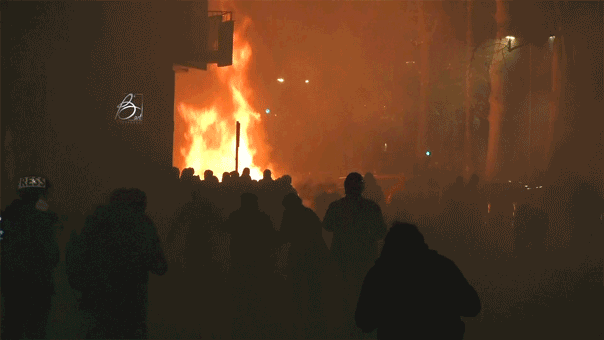DAKAR, Senegal – Prison survivors said corpses were sometimes left to rot in jail until there were enough bodies to be taken away. Several women said they were taken to a remote camp in Chad's desert and used as sex slaves by the army. Others described being tortured while imprisoned.
These accounts were among the testimony given since September at the trial in Dakar of former Chadian dictator Hissene Habre. The defense called its final witness Tuesday, ending the testimony phase of the trial that was years in the making.
Habre, who ruled from 1982-1990 and is currently in a Senegalese jail, is accused in the deaths of thousands of people. He is on trial for crimes against humanity, war crimes and torture by the Extraordinary African Chambers, established by Senegal and the African Union. Human Rights Watch says this trial is the first in Africa to rely on "universal jurisdiction," in which a country's national courts can prosecute the most serious crimes committed abroad, by a foreigner and against foreigners.
For the nearly 4,500 victims who have filed suits against Habre, the trial itself has represented a form of justice.
"I am very satisfied. Since I gave my testimony, I feel cleared, I feel lighter because I was able to speak out to Habre after he haunted me for 25 years," said Clement Abaifouta, the president of the Association of Victims of the Crimes of the Hissene Habre Regime. "No one could imagine that Habre, who was once so powerful, would come to listen to all of his victims."
Habre, who came to court wearing a white turban, part of it usually covering his mouth, rejected the tribunal's authority and remained silent when questioned by the prosecution. His lawyers derided the case as political and didn't appear at the beginning of the trial in July. The court then appointed three Senegalese lawyers who were given time to prepare.
Habre's government was responsible for an estimated 40,000 deaths, according to a 1992 truth commission report that placed particular blame against Habre's political police force. But his defense team tried to show that Habre wasn't involved himself in committing the crimes, which drew skepticism.
"The prosecution and the victims' lawyers presented evidence to show that Hissene Habre wasn't a distant ruler who was unaware of the crimes that were being committed in his name," said Reed Brody, counsel at Human Rights Watch, who has worked on the case since 1999.
A total of 98 witnesses have testified, according to Human Rights Watch, including former members of Habre's police force, the judge in Belgium who carried out an extensive investigation into a complaint filed against Habre there, forensic experts and others who spoke about their experiences in prisons.
Kaltouma Deffalah took the stand and described being in the desert camp at Oudi-Doum, where nine women and girls were allegedly forced to serve the soldiers of Habre's army. While testifying, she proclaimed she was proud and felt strong being in court, able to tell her story while Habre sat silent.
"The trial has shown that it is possible for African victims to bring an African dictator to justice in Africa and for an African court to give that dictator and his alleged victims a fair and transparent trial," said Brody.
Final arguments will be scheduled for early 2016. A verdict is expected by the end of May.
If Habre is found guilty, he faces 30 years in jail.
A second set of hearings on damages for civil parties would also take place, Judge Gberdao Gustave Kam has said.








































